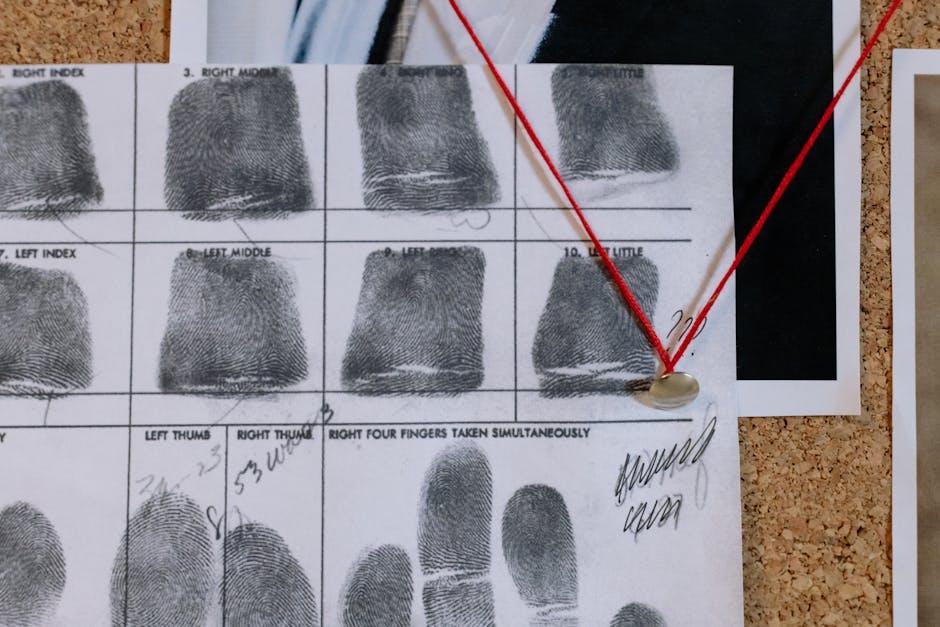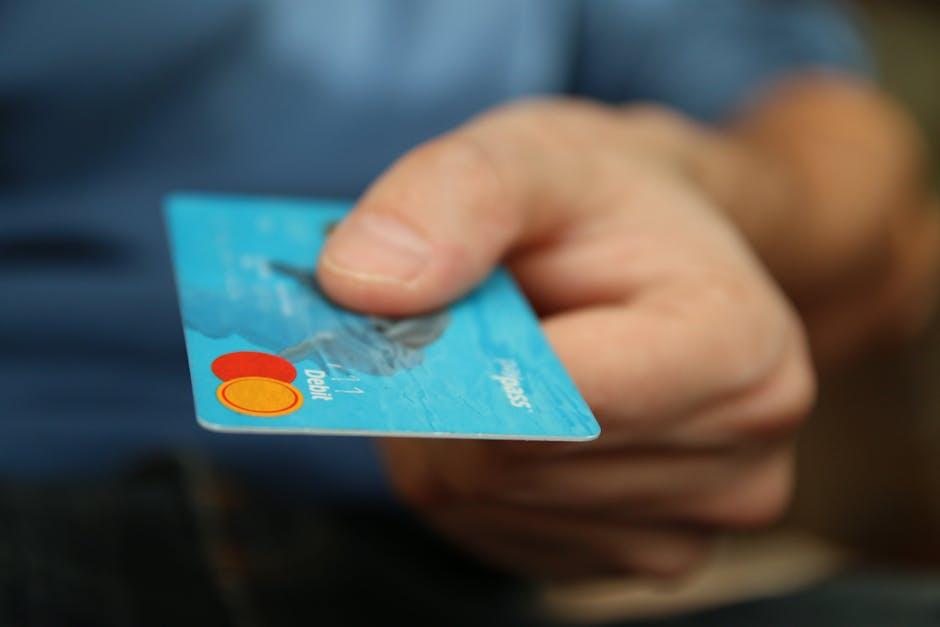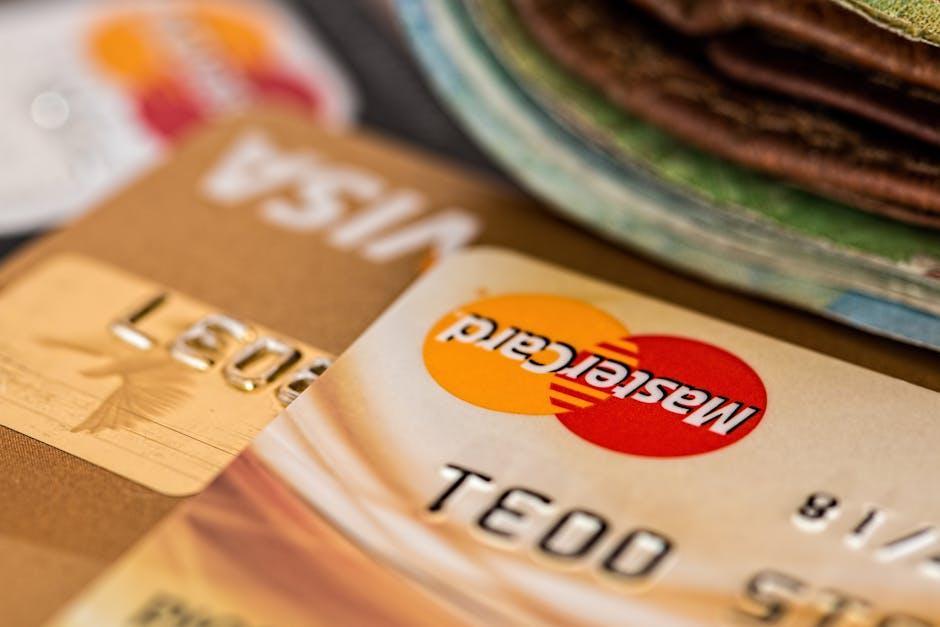Identity theft is an issue that affects millions, weaving a web of anxiety and uncertainty for its victims. In our increasingly digital world, personal information is more vulnerable than ever, making it essential to take proactive steps to safeguard your identity. This article outlines practical measures you can follow to report identity theft effectively, empowering you to reclaim your peace of mind and security. By understanding the reporting process and utilizing available resources, you can navigate the aftermath of identity theft and protect yourself against future threats. Take charge now-your identity deserves to be safeguarded.
Understanding Identity Theft and Its Impact
Identity theft is a serious crime that can leave lasting consequences on victims’ financial stability and emotional well-being. It occurs when someone steals personal information, such as a Social Security number or credit card details, to assume another person’s identity for fraudulent purposes. The repercussions can be devastating and often extend beyond mere financial loss.
Understanding the Effects of Identity Theft:
- Financial Loss: Victims may face unauthorized charges on credit cards, loans taken out in their name, and вank accounts emptied, leading to significant and often difficult-to-recover losses.
- Credit Score Damage: Identity theft can severely impact credit scores, making it challenging to secure loans, mortgages, or even certain employment opportunities.
- Emotional Distress: The stress and anxiety of dealing with identity theft can lead to mental health issues. Many victims report feelings of anger, violation, and fear.
- Time-Consuming Recovery: Rectifying the situation can be prolonged and complex. Victims need to spend hours on the phone, filing reports, and monitoring their financial accounts.
Key Points to Recognize:
- Identity theft can take many forms, including credit card fraud, medical identity theft, and tax identity theft.
- Fraudsters often use phishing scams, data breaches, or social engineering to obtain personal information.
- Victims can have their identities used across state lines, complicating recovery efforts due to jurisdictional issues.
| Type of Identity Theft | Impact |
|---|---|
| Credit Card Fraud | Unauthorized charges and potential credit score impact. |
| Medical Identity Theft | Issues with health records and future medical care complications. |
| Tax Identity Theft | Long delays in receiving tax returns and potential legal issues. |
Being aware of the signs of identity theft and understanding its potential impact is vital for safeguarding your personal and financial information. Taking preventive steps can help mitigate risks and enhance your overall security.

Recognizing the Signs of Identity Theft
early can save you substantial hassle and financial loss. Here are some key indicators to watch out for:
- Unfamiliar Accounts: Check your credit report and bank statements regularly. If you find accounts you don’t recognize, it could be a sign that someone is opening accounts in your name.
- Unexpected Bills: Receiving bills for services you didn’t sign up for? This could indicate someone using your identity.
- Credit Denials: If you are denied credit unexpectedly, it might be because someone else is using your credit history.
- Missing Mail: If you stop receiving bank statements or bills, someone might have changed your address to hide their actions.
- Inaccurate Personal Information: Any discrepancies in your personal information on accounts, like your name or address, can be a warning sign.
To help you identify these threats, consider reviewing your credit reports from the three major credit bureaus: Experian, TransUnion, and Equifax. You have the right to a free report from each bureau annually at AnnualCreditReport.com.
| Sign of Identity Theft | What to Do |
|---|---|
| Unfamiliar Accounts | Contact the financial institution immediately and dispute the account. |
| Unexpected Bills | Reach out to the service provider to investigate the charges. |
| Credit Denials | Request a copy of your credit report to check for errors or fraudulent activity. |
| Missing Mail | Contact your postal service to report mail forwarding or theft. |
| Inaccurate Personal Information | Update your accounts and report discrepancies to the credit bureaus. |
By staying vigilant and informed, you can protect yourself more effectively and mitigate the risks associated with identity theft.

Steps to Secure Your Personal Information
Securing your personal information is a critical step in protecting yourself from identity theft. Here are essential measures to consider:
- Use Strong Passwords: Create complex passwords with a mix of letters, numbers, and symbols. Avoid using easily guessable information.
- Enable Two-Factor Authentication (2FA): Whenever available, use 2FA as an additional layer of security for your online accounts.
- Regularly Monitor Your Accounts: Check bank statements and credit reports every month to identify any suspicious activities.
- Safeguard Personal Documents: Keep sensitive documents, such as Social Security cards and bank statements, in a secure place.
- Be Cautious with Sharing Information: Only provide your personal information when absolutely necessary, and verify the legitimacy of requests.
- Use Secure Connections: Avoid using public Wi-Fi for financial transactions. Always use a secure and private internet connection.
- Shred Paper Documents: Use a shredder for sensitive documents to prevent identity theft.
- Stay Informed: Keep updated on common identity theft tactics to better protect yourself.
| Action | Description |
|---|---|
| Password Management | Utilize password managers to store and generate strong passwords. |
| Credit Freeze | Consider freezing your credit with credit bureaus (Equifax, Experian, TransUnion) to prevent unauthorized access. |
| Identity Theft Protection | Enroll in an identity theft protection service for additional monitoring. |
| Secure Backups | Regularly back up important files in a secure location, like an encrypted external drive or a secure cloud service. |
Implementing these steps will significantly enhance the security of your personal information. Always remain vigilant and proactive in your identity protection efforts.

How to Report Identity Theft and Take Action
If you suspect that you’ve fallen victim to identity theft, it’s crucial to take immediate action. The steps you take now can prevent further damage and help you reclaim your identity. Here’s a straightforward guide to reporting identity theft and protecting yourself:
- Place a Fraud Alert: Contact one of the three major credit bureaus-Equifax, Experian, or TransUnion. They will notify the others on your behalf. A fraud alert requires creditors to verify your identity before issuing new credit.
- Obtain Your Credit Reports: Visit AnnualCreditReport.com to request a free copy of your credit report from each bureau. Review them carefully for any unauthorized accounts or charges.
- Report to the Federal Trade Commission (FTC): File a report at IdentityTheft.gov. This is the official government website for identity theft complaints, and it provides a recovery plan tailored to your situation.
- Notify Your Financial Institutions: Contact your bank and credit card companies to report the theft. They can help you freeze accounts, dispute fraudulent charges, and issue new cards.
- File a Police Report: Visit your local police department to file a report. Bring your FTC report and any evidence of identity theft, such as account statements or collections notices. This can help when dealing with potential lenders or creditors.
- Secure Your Information: Change passwords and security questions on your online accounts. Consider using a password manager for added security.
- Consider a Credit Freeze: A credit freeze locks your credit report, making it difficult for identity thieves to open accounts in your name. You’ll need to request a freeze with each credit bureau.
- Monitor Your Accounts: Regularly check your bank and credit card statements for unfamiliar transactions. Sign up for credit monitoring services if possible.
Document all your communications and keep copies of any correspondence related to the theft. This can be invaluable as you work to recover your identity and protect your financial future.
| Credit Bureau | Contact Information | Website |
|---|---|---|
| Equifax | 1-800-485-7000 | equifax.com |
| Experian | 1-888-397-3742 | experian.com |
| TransUnion | 1-800-680-7289 | transunion.com |
By following these steps, you’ll be well on your way to mitigating the impact of identity theft and safeguarding your financial future.

Final Thoughts
As we conclude our journey through the essential steps to report identity theft, remember that vigilance is your best defense. Being proactive in safeguarding your personal information can mitigate the damage caused by this invasive crime. Each step you take-from monitoring your accounts to filing reports-builds a fortress around your identity, ensuring that you remain in control. Should you ever find yourself facing the unsettling reality of identity theft, lean on the knowledge you’ve gained here to navigate the process effectively. Empower yourself, stay informed, and always prioritize your personal safety. Your identity is invaluable; protect it fiercely.














